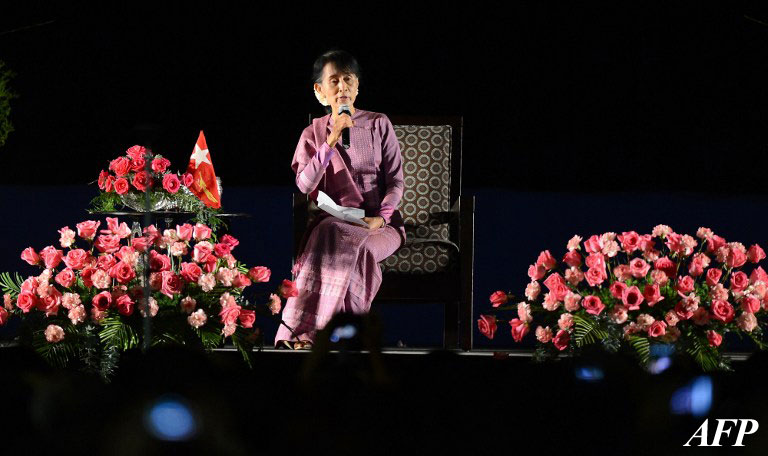Opposition leader Aung San Suu Kyi, prior to her return to Burma on Wednesday, told some 3,000 Burmese natives in Los Angeles that Burma is “50 years behind the rest of the world.”
 “To compensate for these 50 years, we have to run while others walk,” she said. “We will have to work very hard to catch up with everyone else.”
“To compensate for these 50 years, we have to run while others walk,” she said. “We will have to work very hard to catch up with everyone else.”
“The Burmese people who live [in the U.S.] have a variety of opportunities and rights, compared to those living in our country. Whatever citizenship you have now, I would request that you work to help our country in a practical way.”
The leader of the National League for Democracy (NLD) opposition party and Member of Parliament praised the U.S. for its support, but emphasized that Burma would need to create a new form of democracy according to the country’s own needs.
Aung San Suu Kyi also addressed ethnic tension in western Burma’s Rakhine State, where violence between Rohingya Muslims and Rakhine Buddhists in June left more than 80 people dead and tens of thousands displaced.
“When the conflict began in Rakhine State, actions were not taken effectively or quickly enough according to the law, and therefore the conflict escalated … That's why [preserving] rule of law is very important there,” she said.
Tensions remains high in Rakhine, nearly four months since the initial conflict took place, and Aung San Suu Kyi said that the government needs to put measures into place to prevent misunderstandings that could ignite further unrest.
“We do not support or accept any violation of human rights … [We must] determine why the violation of human rights has become habitual [in Rakhine],” she said.
“It is not enough to take action only when it happens … How are we going to change the people’s mindset and the culture of their society so that they do not violate [each other’s rights]?” she asked.
On Sept. 17, Suu Kyi visited the capital to receive the Congressional Gold Medal, and to hold meetings with US Secretary of State Hillary Clinton and President Barack Obama on the status of economic sanctions against her country.
In New York, Aung San Suu Kyi visited the United Nations, where she worked in the 1970s, and met with UN General Secretary Ban Ki Moon. While in New York, she also met with Burmese President Thein Sein, who had traveled to the US to address the U.N. General Assembly.
The US announced plans to ease of an import ban on Burmese goods at a meeting with Thein Sein on the sidelines of the UN meeting.
Aung San Suu Kyi also visited Yale and Harvard universities.
The completion of her US tour is the culmination of a long road, marking her own struggles with the former military regime and Burma’s emergence as a fledgling democracy trying to establish national reconciliation and reconstruction of its shattered economy.


